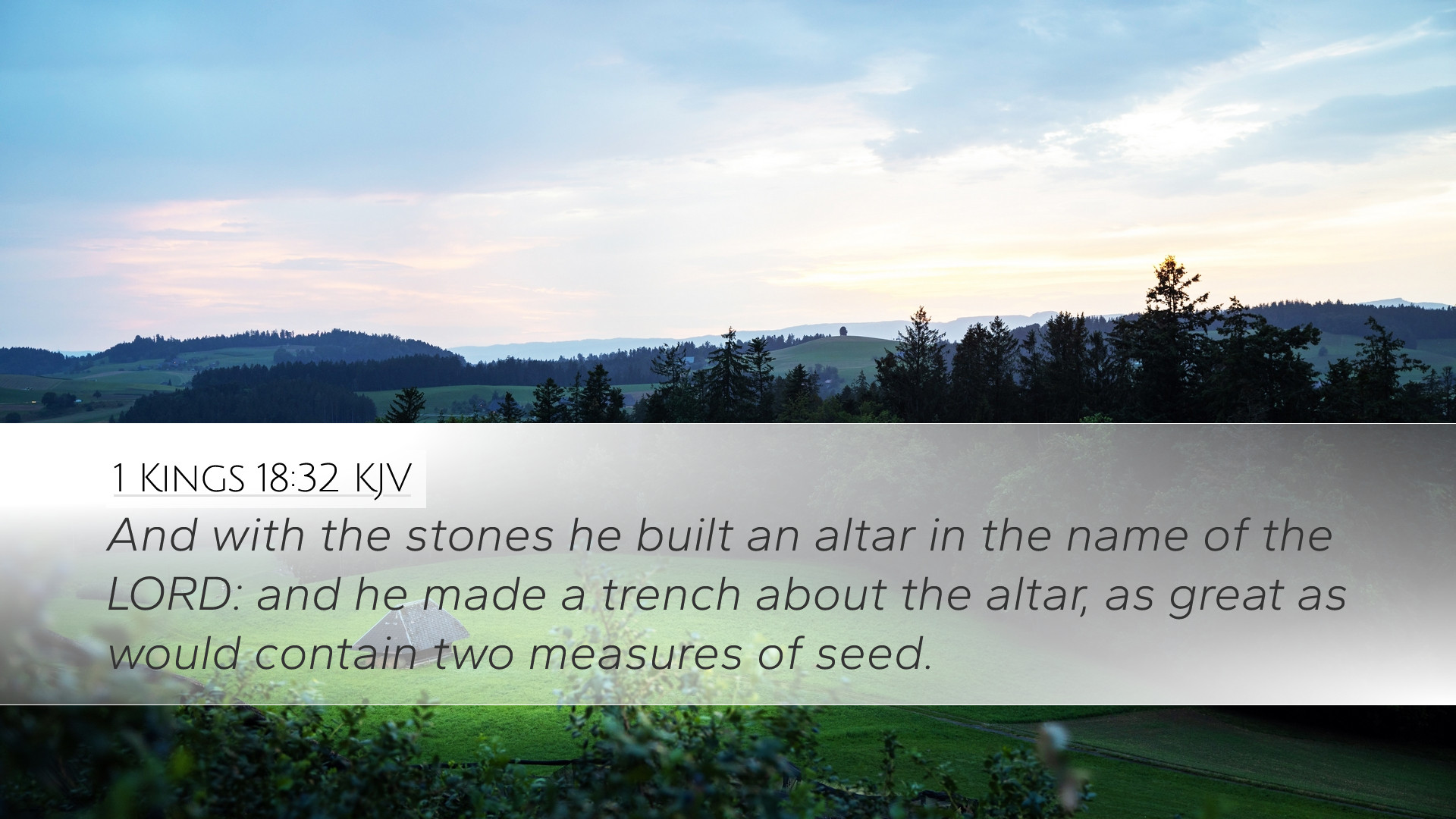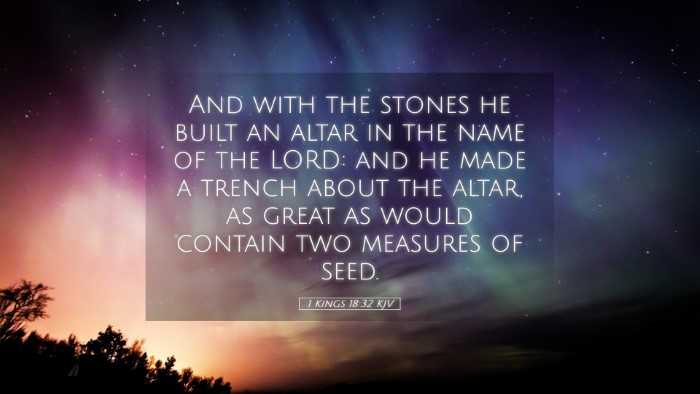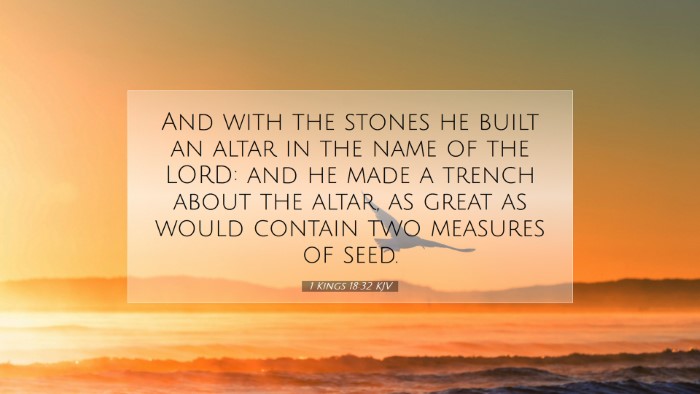Commentary on 1 Kings 18:32
1 Kings 18:32 states:
"And with the stones he built an altar in the name of the LORD; and he made a trench about the altar, as great as would contain two measures of seed."
Introduction
This verse occurs in the context of the confrontation between the prophet Elijah and the prophets of Baal on Mount Carmel. It signifies a moment of profound significance where Elijah seeks to demonstrate the power of the true God over the false idols of Baal. The act of building an altar, as described in this verse, is both a physical and spiritual undertaking, loaded with meaning and implications.
Exegesis and Insights
In examining 1 Kings 18:32, several key themes and insights emerge from public domain commentaries by prominent theologians.
1. The Altar of the LORD
Matthew Henry notes that the altar signifies a place of sacrifice and worship. By building an altar "in the name of the LORD," Elijah was not just following protocol; he was re-establishing the worship of Yahweh among the people of Israel. The altar serves as a physical representation of faith, calling the people back from their idolatry.
2. The Use of Stones
Albert Barnes emphasizes that the stones used for the altar symbolize God's enduring presence and the covenant with Israel. According to the ancient practices, stones were unhewn to signify purity, indicating that man should not interfere with God's design. Each stone could also represent the tribes of Israel, recalling the foundational nature of their identity in God.
3. The Trench and Its Significance
Adam Clarke elaborates on the trench built around the altar, which could contain "two measures of seed." This trench is essential for the preparation for demonstrating the divine intervention Elijah anticipated. The trench not only functioned practically to hold water during the sacrifice but symbolizes the preparation of the heart for encountering God. To have an altar alone is insufficient; the surroundings must be conducive to a genuine encounter with the divine.
Theological Implications
The actions of Elijah in this verse serve as a powerful model for worship and faithfulness. Each component of the altar emphasizes the importance of returning to the fundamental aspects of worship. This moment encourages believers to evaluate their own altars – what do they symbolize in their worship and devotion to God?
1. Worship in Spirit and Truth
Elijah’s act of building an altar points to the necessity of worship that is rooted in truth and sincerity. Henry emphasizes that the worship of the true God cannot be constructed on falsehood; it must be authentic and possess integrity. Worship, therefore, becomes a genuine act of reconciling and drawing near to God.
2. The Community Aspect
The altar erected by Elijah not only serves his personal devotion but acts as a rallying point for the people of Israel. Barnes highlights that communal worship, especially when confronting false beliefs, is critical for reviving faith within a community. The imagery of the altar suggests that the call to worship the true God must resonate within the community, bringing together the hearts of the people.
3. Preparation for God’s Response
Clarke’s observation regarding the trench invites readers to consider the preparation required before God moves in power. True worship involves not only the act of building an altar but also diligently preparing for what God will do. The preparation for Elijah’s contest serves as a reminder that divine happenings often require a ready heart and mind.
Conclusion
In summary, 1 Kings 18:32 encompasses vital themes of worship, preparation, and community, all of which are crucial for modern believers. By returning to the fundamental practices of faith, believers can forge an intimate connection with God, much as Elijah did on Mount Carmel. Through the joint insights from Matthew Henry, Albert Barnes, and Adam Clarke, the depth of this passage can be appreciated as a powerful call to authentic worship and revival.


